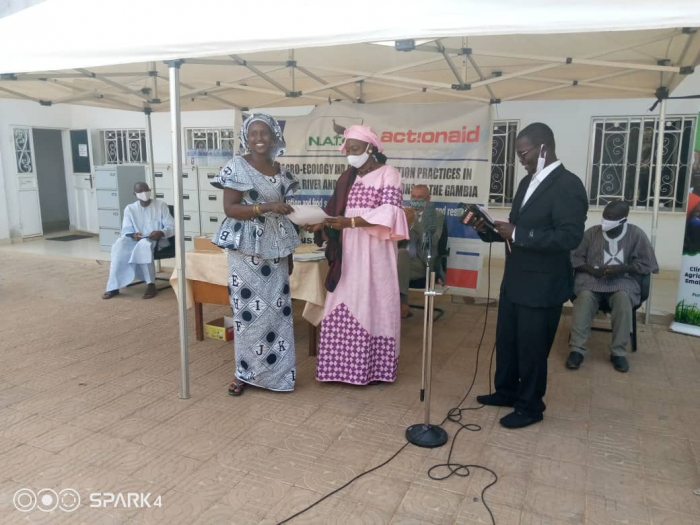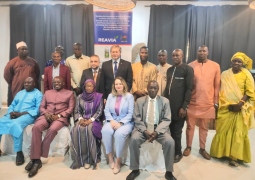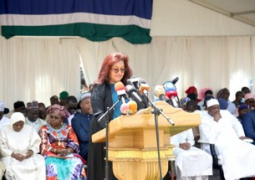
The project is funded by the European Union (EU) under the 11th European Development Fund (EDF) phase 1 of the Agriculture for Economic Growth and food / nutrition security to mitigate migration programme in The Gambia.
It is entitled: Promoting Agro-ecology and Eco-Restoration practices in Southern Central River and North Bank Regions of The Gambia targeting to contribute to job creation and food security for women and youth and scale up their adaptive capacities on sustainable agriculture and climate change through Agro-ecology and eco-restoration practices.
Omar Badgie, executive director of ActionAid International The Gambia, said the support will help to build the beneficiaries’ resilience and enhance their adaption and coping capacities to assure that they can make it in The Gambia.
He said the project is designed to increase employment in the rural areas and enhance the ability of smallholder farmers to adapt to the changing climate with a view to contribute to the reduction of migration among youth. "The first challenge we are facing is climate change which has negative impact on people in many aspects, including migration which is a strong push factor that is making life extremely difficult in the rural areas."
Minister of Agriculture, Amie Fabureh said the project is aligned with the agriculture sector policies and strategies, the NDP (2018-2021) and SDG goals to end poverty, hunger and achieve food security to improve nutrition and promote sustainable agriculture.
She said the government of The Gambia is committed to enhancing production and productivity of the country’s local farmers, especially during the trying moments with COVID-19 pandemic, saying her ministry has been committed for many years, to working with many key stakeholders in supporting and promoting agro-ecology in various regions.
"The response will cushion households to build on their resilience to provides means for farmers to sell their seeds, increase their production capacity and prevent other adverse coping mechanisms such as further sales of productive assets and possibly illegal migration eventually."
Atila Lajos, EU Ambassador to The Gambia said the ActionAid International The Gambia contract is being implemented in 30 communities across the country and the programme is expected to reduce migration flows, especially to the EU. "The project will be carried out in North Bank, Central, Lower and Upper River Regions."
Ambassador Lajos said by focusing on women and youth in particular, the intention is to provide viable alternatives to migration to urban areas or even to Europe, through providing them with the necessary knowledge, skills and inputs to engage in sustainable agro-ecology farming practices for food security and gainful employment within their communities.




